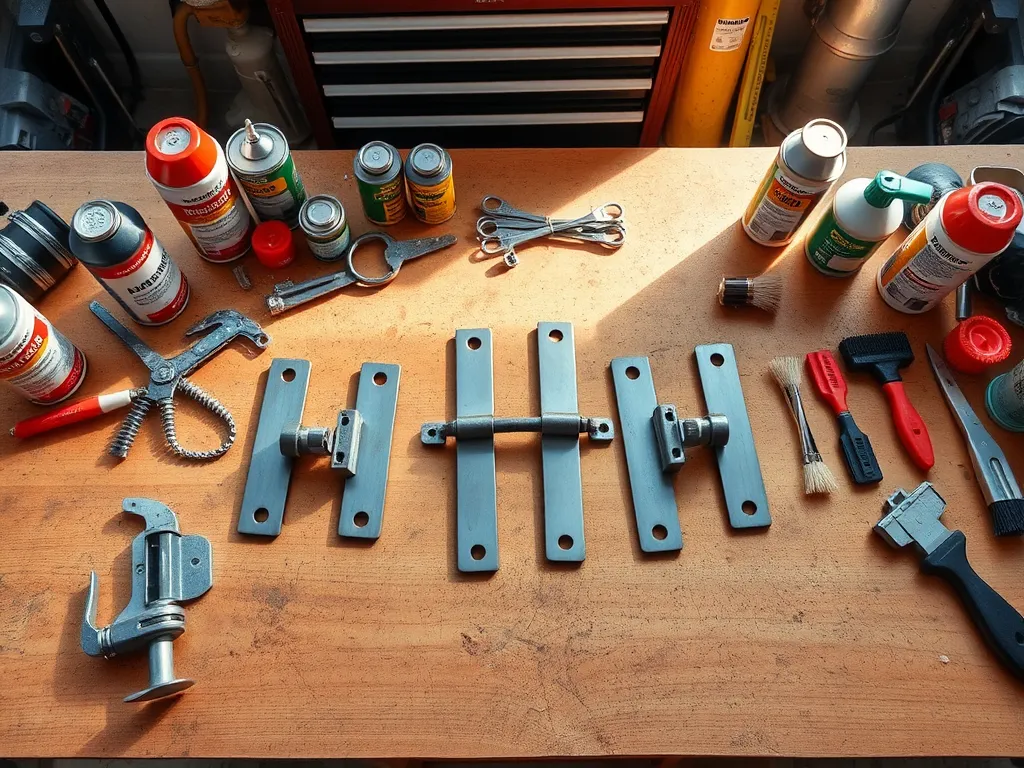Essential Guide to Lubricating Garage Door Hinges

The Ultimate Guide to Garage Door Maintenance
Garage Door Maintenance is crucial for ensuring that your garage door operates smoothly and lasts for many years. Regular maintenance can prevent costly repairs and enhance safety, making it an essential task for homeowners. By understanding the best practices for maintaining your garage door, you can easily manage this often-overlooked aspect of home care to keep it in optimal working condition.
Moreover, Garage Door Maintenance encompasses a range of activities, including visual inspections, lubrication of moving parts, and adjustments to the door’s mechanisms. This comprehensive approach helps identify potential problems early, reducing the likelihood of failure. A well-maintained garage door not only improves the longevity of the door itself but also ensures that it operates safely and efficiently.
One of the key components of Garage Door Maintenance is regularly checking and adjusting the door opener, tracks, and hinges. It is important to ensure that everything is aligned correctly and functioning as intended. Additionally, monitoring the condition of the door materials, including the seal at the bottom and the overall structure, is vital to prevent damage from weather and environmental factors.
Mastering proper technique during garage door installations ensures safety and improves overall functionality, prolonging the system's lifespan.
Ultimately, investing time in regular Garage Door Maintenance can save money over the long term by avoiding hefty repair bills. Proper care can also enhance the aesthetic appeal of your home, as a well-maintained garage door contributes positively to curb appeal.
Homeowners seeking peace should prioritize squeak elimination techniques to enhance their living environment and extend equipment life.
In the following sections, we will discuss the importance of lubrication for garage door hinges, the best lubricants to use, and a step-by-step process for effective lubrication. Additionally, we will cover signs that indicate your garage door needs lubrication and long-term care tips to ensure its longevity.
Importance of Lubrication for Garage Door Hinges
Lubrication is vital for garage door hinges, as it facilitates smooth operation and minimizes friction between moving parts. Regular lubrication helps to ensure that the door opens and closes without any hitches, ultimately prolonging the lifespan of the door and its components. Furthermore, proper lubrication reduces noise, making garage door operation almost silent, which is preferred in residential areas.
Neglecting lubrication can lead to a range of problems, including stiff or jammed hinges, which can put undue stress on the door’s entire mechanism. Over time, this can result in premature wear and tear, leading to costly repairs or the need for complete hinge replacement as parts start to corrode or break down.
For efficient garage door maintenance, refer to this comprehensive hinge lubrication guide that outlines essential steps.
Frequency of lubrication will depend on how often the garage door is used. As a general rule, it is advisable to lubricate garage door hinges every six months, and more frequently in areas with harsh climates. It is also beneficial to inspect the hinges regularly, even in between lubrication intervals, to ensure they remain in good condition.
Best Lubricants for Garage Door Hinges
There are several types of lubricants suitable for garage door hinges. The most common include oil, grease, and silicone sprays. Each type has its own advantages, and the choice often depends on the specific needs of your garage door. For example, silicone spray offers long-lasting effects without attracting dirt, while grease can provide a thicker layer of protection.
When selecting the right lubricant, consider factors such as the climate in your area and the specific type of garage door mechanism you are working with. A lightweight oil might be best for lighter doors, whereas grease might be ideal for heavier mechanisms that experience more stress. Always check the manufacturer's recommendations if available.
Top product recommendations for garage door hinges include: WD-40 Specialist Silicone, 3-IN-ONE Oil, and DuPont Teflon Non-Stick Dry-Film Lubricant. These products are known for their effectiveness in reducing friction and providing long-lasting lubrication for various types of garage door hinges.
Step-by-Step Process to Lubricate Garage Door Hinges
Before you start lubricating your garage door hinges, gather the necessary tools: a ladder (if needed), a clean cloth, and your chosen lubricant. Ensure that the garage door is in the closed position and safely secured to prevent any accidents during the lubrication process.
1. Clean the hinges: Begin by wiping down the hinges and the area around them to remove any dirt, debris, or old lubricant. This ensures that no contaminants interfere with the new lubricant. 2. Apply the lubricant: Use the spray nozzle or a small brush to apply a liberal amount of lubricant to each hinge. Ensure that the lubricant penetrates into the joint of the hinge for maximum effectiveness. 3. Operate the door: Open and close the garage door several times to help distribute the lubricant evenly throughout the hinge. This will allow the lubricant to work its way into all moving parts, reducing friction. 4. Wipe away excess: Finally, use a clean cloth to remove any excess lubricant to prevent it from attracting dirt and grime.
Common mistakes to avoid during lubrication include using too much lubricant, which can attract dirt and debris, and failing to clean the hinges properly beforehand, which can lead to the new lubricant mixing with old contaminants and reducing its effectiveness.
Signs Your Garage Door Needs Lubrication
One of the primary signs that your garage door needs lubrication is if you hear a noisy operation when the door opens or closes. Squeaking, grinding, or rattling noises can indicate that the hinges and other moving parts require lubrication to reduce friction.
Another sign is stiff or jammed hinges. If you notice that the door struggles to open or close smoothly or seems to stick at certain points, this may indicate that lubrication is necessary.
Lastly, visual signs of wear on hinges, such as rust, corrosion, or a lack of smooth movement, can signal that it’s time for some maintenance. Regularly inspect your garage door hinges and listen for any unusual sounds to spot issues before they become serious.
Long-term Care for Garage Door Hinges
Routine maintenance tips for long-term care include regular inspections, cleaning of hinges, and ensuring proper alignment of the door and its components. Keeping the tracks clear of debris and checking the remote and manual openers are also important for smooth operation.
Preventive measures to extend hinge life include avoiding overloading the garage door with excessive weight, ensuring that the garage door is balanced, and addressing any operational issues immediately to prevent further damage.
Replace garage door hinges when they show significant wear, rust, or damage that cannot be repaired through lubrication or adjustments. Regular maintenance and timely replacements can greatly enhance the longevity and reliable performance of your garage door.
